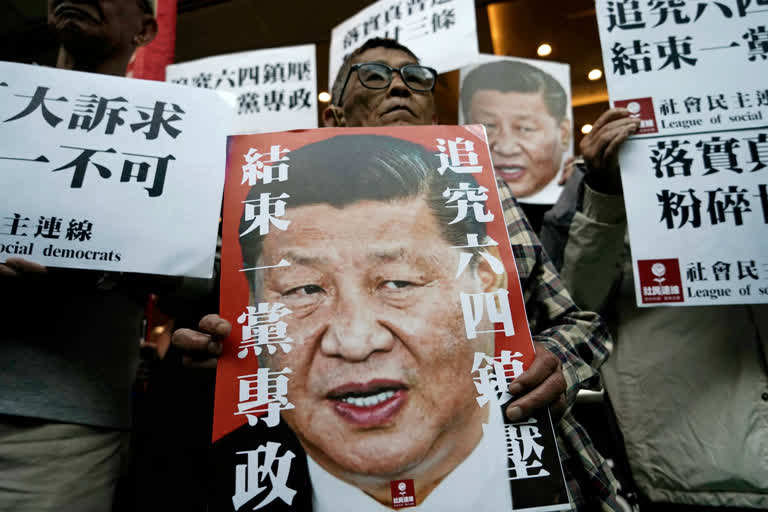Beijing: China's legislature will take over long-stalled efforts to enact national security legislation in Hong Kong, a move that could limit opposition activity in the semi-autonomous territory and signals the central government's determination to take greater control after months of pro-democracy protests last year.
The announcement drew sharp criticism from the US, which has threatened to withdraw preferential trade status for Hong Kong and seems likely to prompt more protests in the short run.
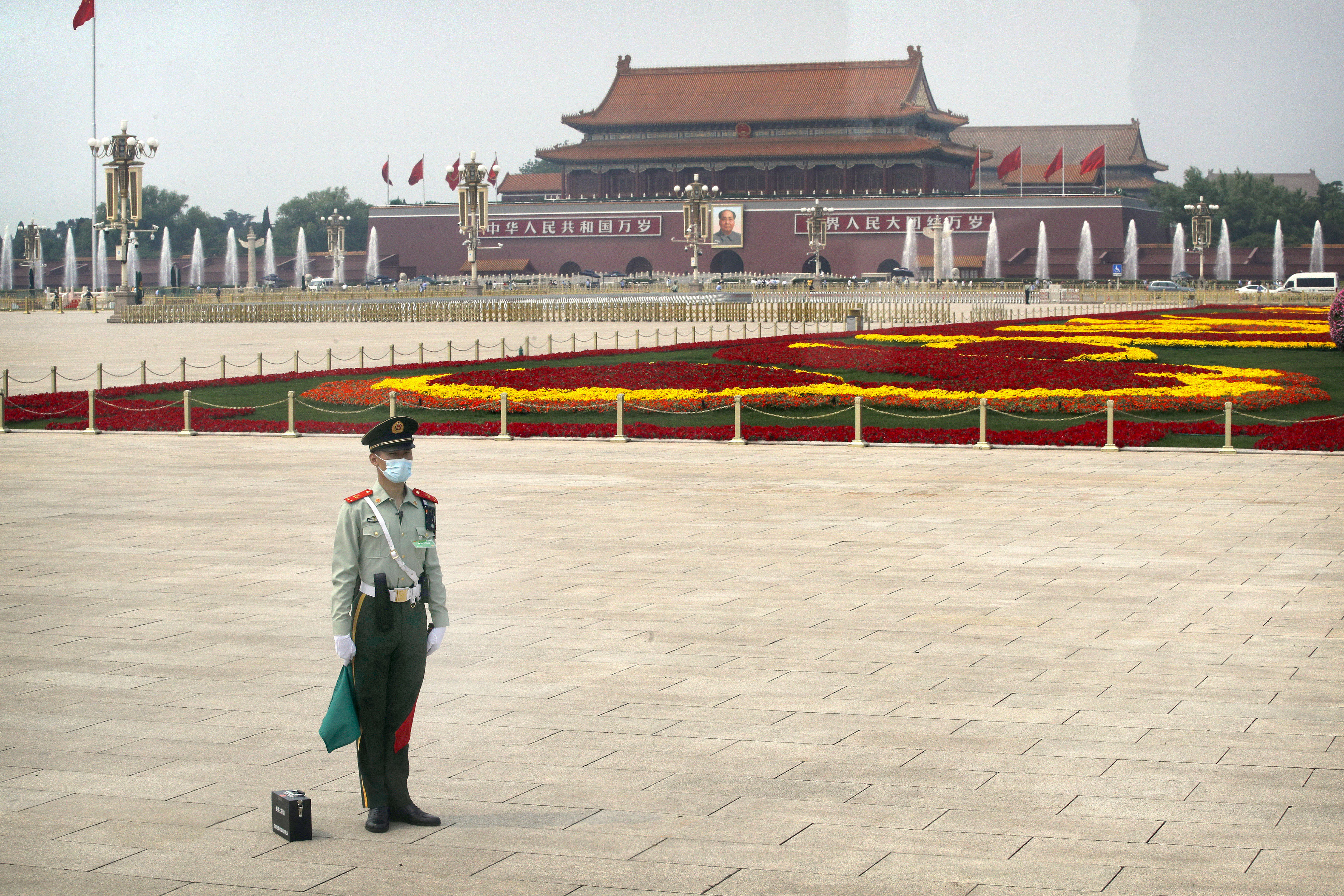
The National People's Congress, which starts a one-week annual session Friday, will deliberate a bill on “establishing and improving the legal system and enforcement mechanisms for the Hong Kong Special Administrative Region to safeguard national security," spokesman Zhang Yesui said at a late-night news conference previewing the meeting.
Such a move has long been under consideration and was hastened by the months of anti-government protests last year in the former British colony that was returned to China rule in 1997.
Hong Kong's government is bound by Article 23 of the Basic Law, its constitution, to enact laws to prohibit any act of treason, secession, sedition or subversion against China. It proposed legislation to do so in 2003, but withdrew it after hundreds of thousands of people came out to protest.
Beijing has increasingly pushed for measures such as punishment for disrespecting the Chinese national flag and anthem and increased pro-China patriotic-themed education in schools, but opposition in Hong Kong’s Legislative Council makes it unlikely a national security bill could pass at the local level.
Now, China appears to be sidestepping Hong Kong's lawmaking body to enact the legislation. Zhang said that the new measures are required by the “new situation and demands" and that action at the national level is “entirely necessary."
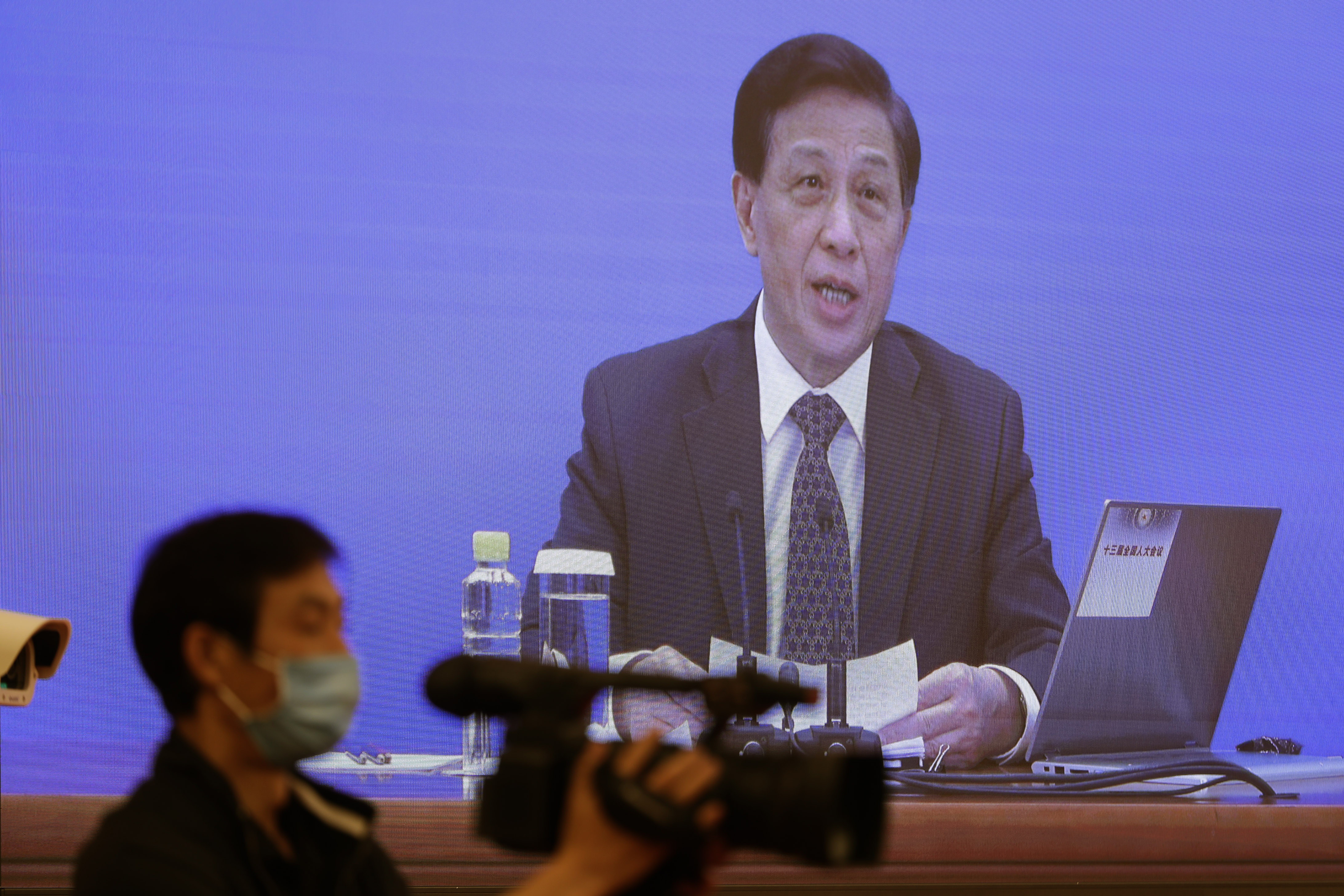
Read more: Hong Kong lawmakers clash as pro-Beijing camp elects chair
Dennis Kwok, an opposition lawmaker in the city, called the move the end of Hong Kong and the “one country, two systems” framework under which it is part of China but has its own legislature and judicial system.
“Make no mistake about it, that Beijing, the Central People’s Government, has completely breached its promise to the Hong Kong people, a promise that was enshrined in the Sino-British Joint Declaration, and the Basic Law,” he said.
In Washington, where President Donald Trump and his top national security officials have been increasingly critical of China for both its response to the coronavirus pandemic and actions in Hong Kong, the State Department said such a move would “undermine the PRC’s commitments and obligations in the Sino-British Joint Declaration.”
“Any effort to impose national security legislation that does not reflect the will of the people of Hong Kong would be highly destabilizing, and would be met with strong condemnation from the United States and the international community,” spokeswoman Morgan Ortagus said. She added that attempts to limit human rights and fundamental freedoms in Hong Kong would affect “the United States’ current treatment of Hong Kong.”
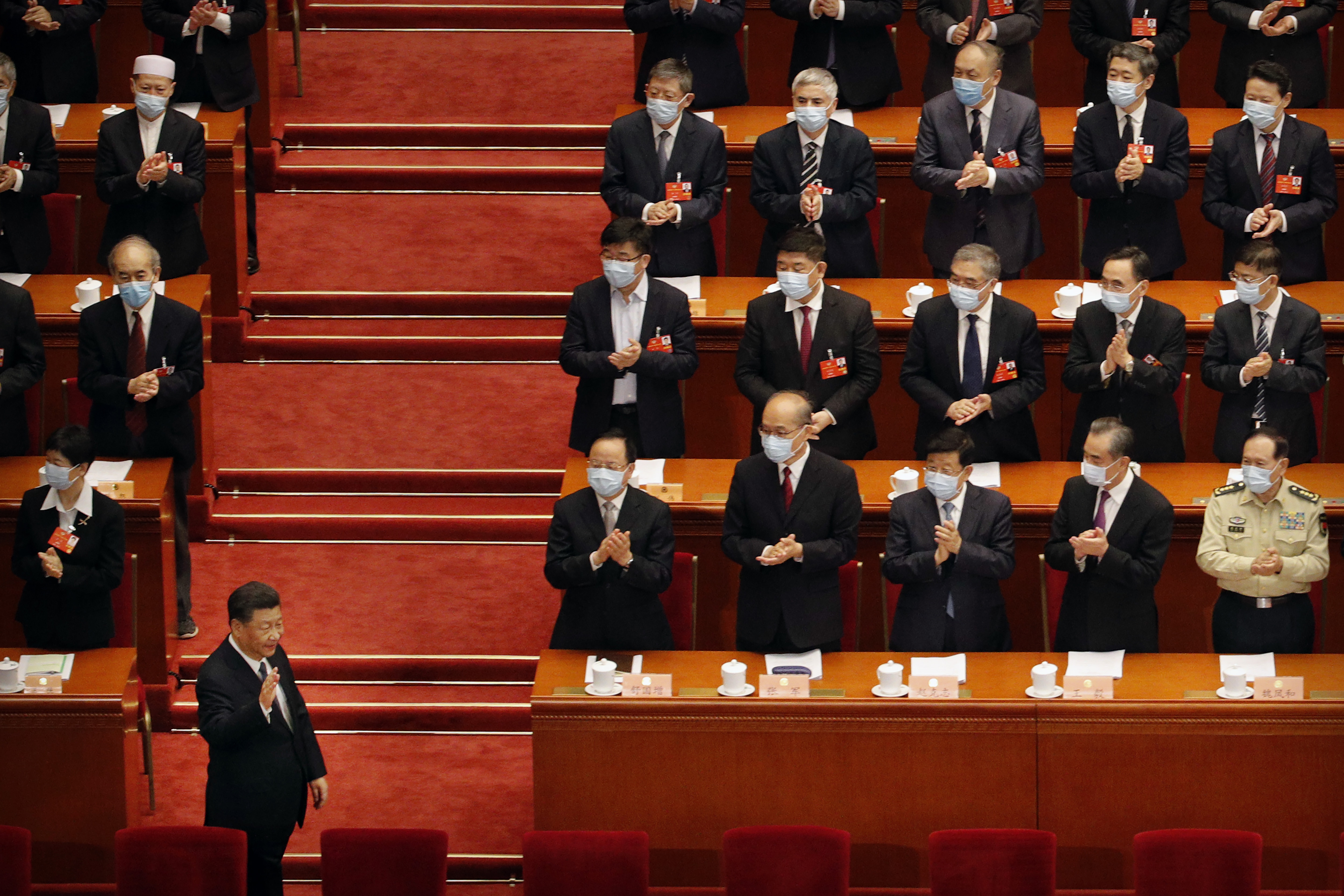
Hong Kong’s media said a draft resolution would be brought before the National People's Congress on Friday afternoon and voted on at the end of its session on May 28. The congress’ standing committee that handles most actual legislation will then consider the details of the measure, the newspaper said.
Also read: New quarantine rules at Hong Kong-China border
A vote at the NPC will add to concerns in Hong Kong's pro-democracy camp that Beijing is chipping away at the territory's rights to assembly and free speech that greatly exceed those permitted by the ruling Communist Party in mainland China.
The decision to circumvent Hong Kong's Legislative Council to enact the security legislation is an “unprecedented and highly controversial intervention," Johnny Patterson, director of the non-governmental organization Hong Kong Watch, said in a statement.
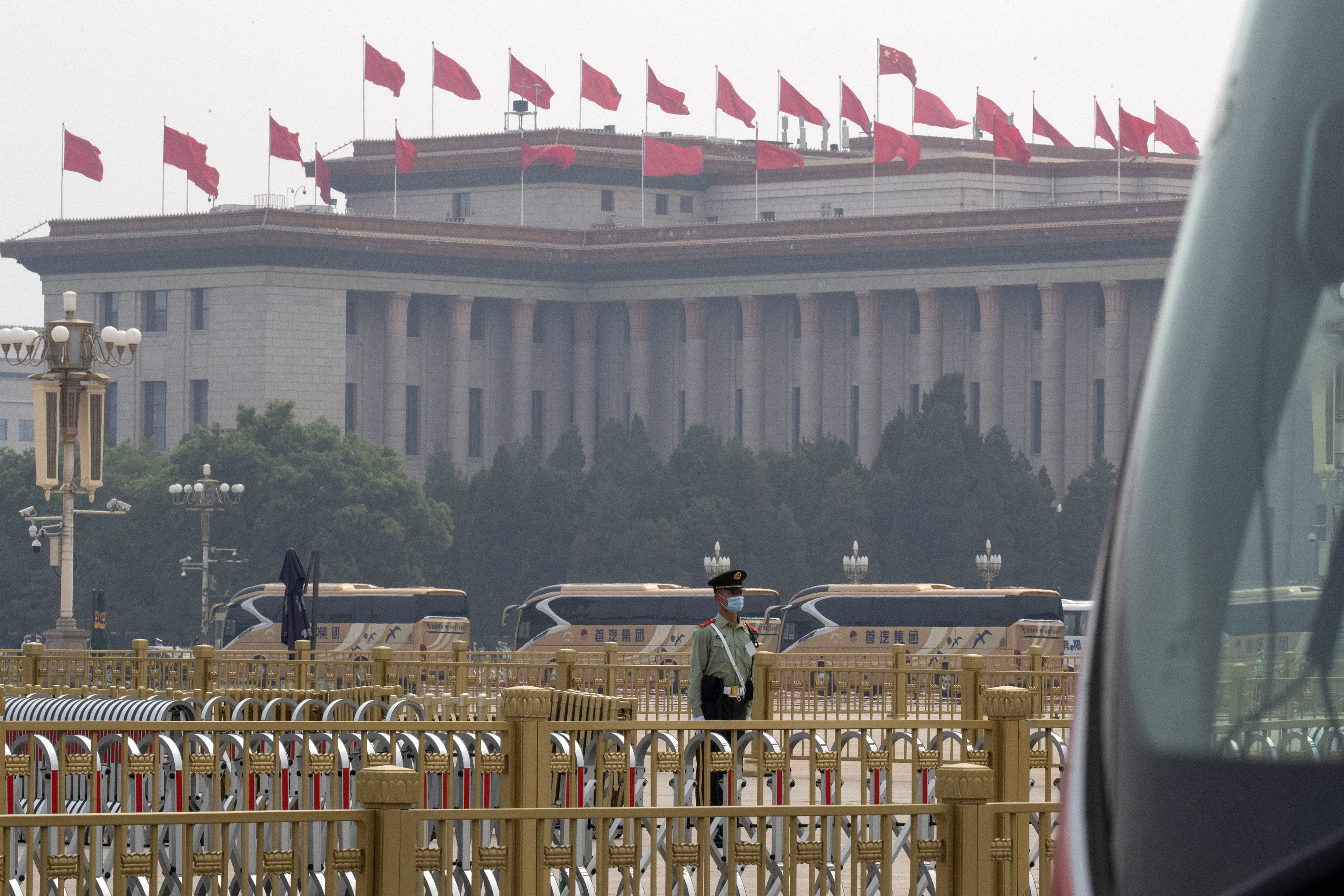
Patterson questioned whether charities and groups such as his own and Amnesty International could be outlawed as subversive under the legislation.
“A broad-brush interpretation of this law would signal the end of Hong Kong as we know it,” Patterson said.
The annual session of the congress is getting underway after a two-month delay because of the coronavirus pandemic.
Thursday saw the opening session of the Chinese People’s Political Consultative Conference, an advisory body. That will be followed Friday by the start of the 3,000-member NPC at which Premier Li Keqiang will deliver a keynote speech outlining economic and social goals for the year.
The holding of the “two sessions,” as the annual meetings are known, is a further sign of what the party says is its success in bringing the outbreak under control, although clusters of cases are still popping up in some parts of the country.
Also read: Big crowd gathers in Hong Kong for 1st protest rally of 2020
Members of the Consultative Conference will “tell the world about how China, as a responsible major country, has taken firm action and contributed to international cooperation in the fight against the COVID-19 epidemic,” Wang Yang, the chairman of the body, said in a report to the opening session.
Wang’s comments were in the prepared text distributed to journalists, although he skipped over them in his delivery, apparently to save time.
Rank-and-file members wore masks in the vast auditorium inside the Great Hall of the People in the heart of Beijing. Other top officials, including Wang, Li and President Xi Jinping, did not.
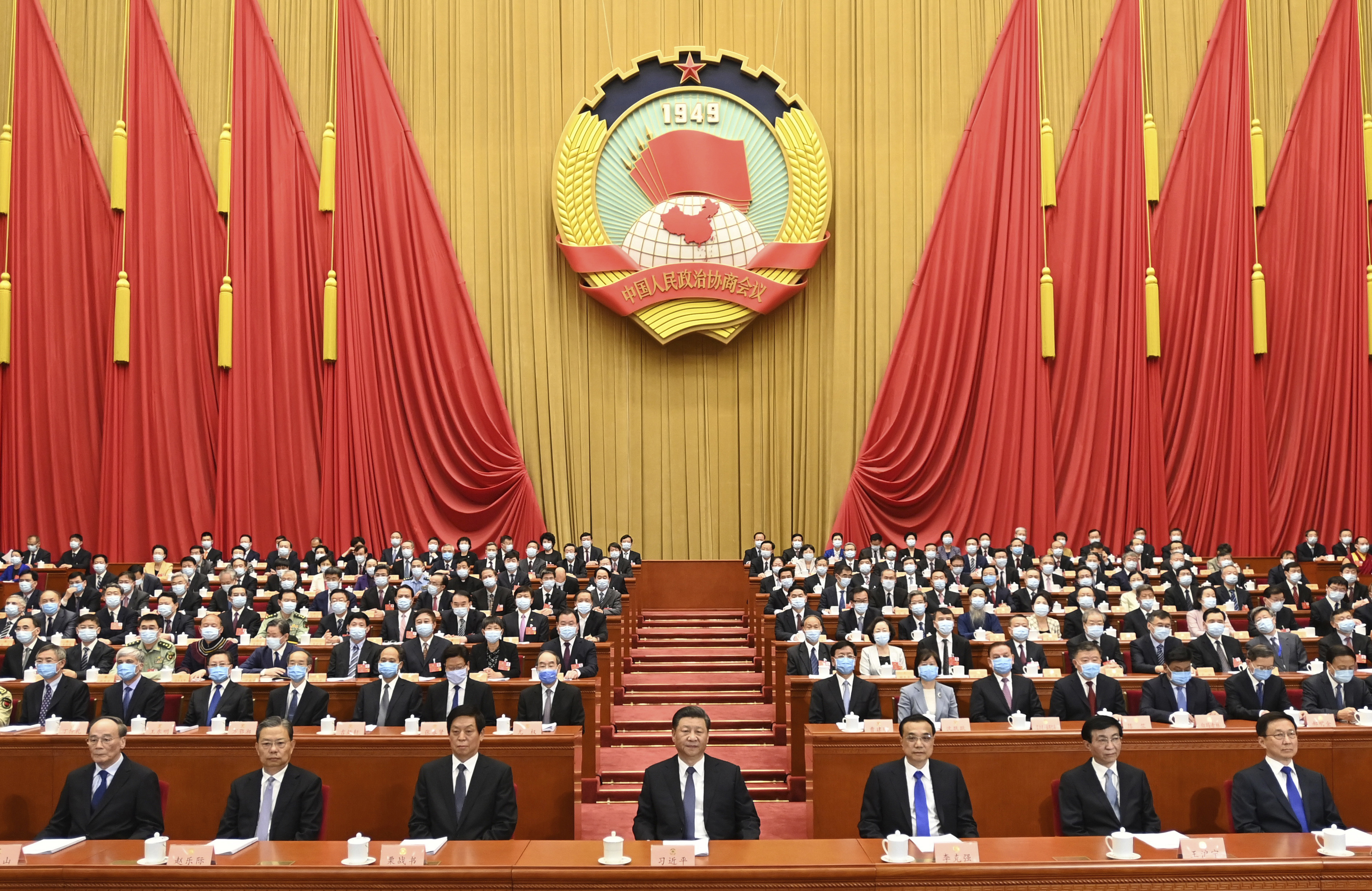
This year’s meeting of the two bodies is being shortened to one week from the usual two as part of virus-control measures. Media access has been largely reduced and only a limited number of reporters, diplomats and observers were permitted into the meeting hall.
Backed by massive state propaganda support, Xi has received plaudits at home for having contained the virus, even while the US and others question China’s handling of the initial outbreak.
The Chinese public is also largely seen as backing Xi's tough approach to foreign policy challenges, including criticism from the US, Australia and others.
Abroad, however, that policy has further bolstered concerns about China’s intentions. That may ultimately add to Xi’s difficulties in reviving economic growth and jobs at a time when global markets are partly shut and scepticism toward China runs high.
Also read: HK police detain 336 during Christmas protests
(With inputs from AP)
